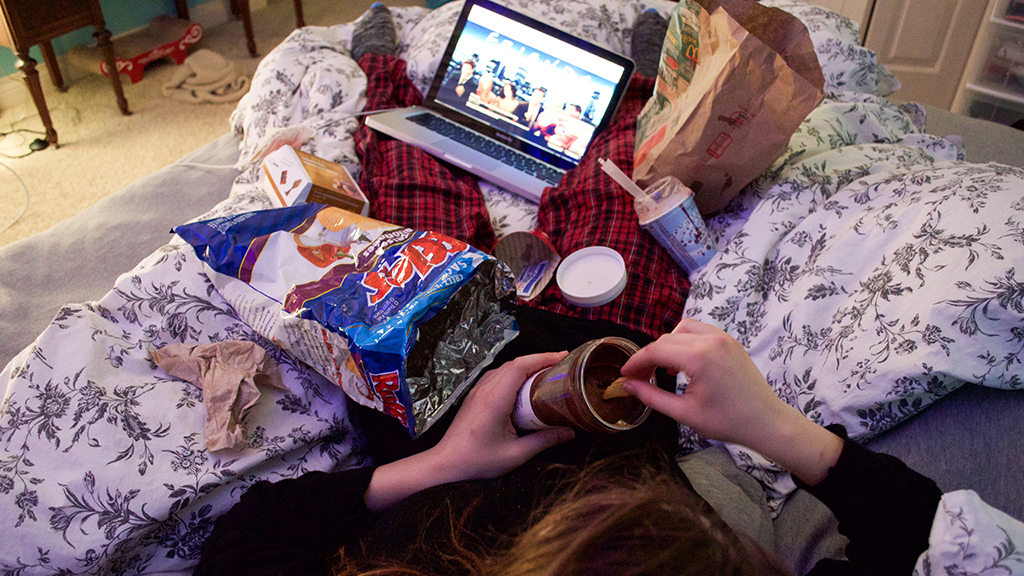 Rachel Lyons
Rachel LyonsThe crowds of gym-goers with New Year’s resolutions tend to dwindle as February approaches, but it might be too soon to shelf those diet goals or drop out of the gym.
After January, many people begin to deviate from their resolutions either due to a lack of motivation, results, or a mix of both. But a University of Alberta lecturer suggests that certain steps can keep the goals alive.
According to Angela Bayduza, a Faculty Lecturer in the Faculty of Physical Education & Recreation, people are unable to achieve their resolution goals because they don’t give themselves enough time to ingrain that behaviour into their life.
People tend to want instant results, which causes them not to get back on the wagon if they “slip-up,” she said.
“If a person was doing really well for two weeks and then slipped up once a lot of them say ‘we can’t do this’ instead of trying to learn why you fell off the wagon,” she said.
Bayduza added that only about 12 per cent of people are able to continue out with their New Year’s resolutions at the six-month mark.
However, placing more thought behind resolutions and falling-outs might be the most important key to achieving these goals. Critically planning resolutions and thinking out the reason behind achieving a goal could give individuals extra motivation to stick to them.
“Individuals don’t step back to look at why it’s so difficult to let go of the old behaviour,” she said. “A lot of us don’t think about what the behaviour is, why we do it, and what its purpose is.”
Most resolutions aim to change negative behaviours people find within themselves. Bayduza said that changing these behaviours is difficult because they have been habituated into their lifestyles.
More time and patience placed into breaking down the old behaviour and replacing it with a new behaviour could be more effective.
Professor in the Faculty of Medicine and Dentistry Arya Sharma said the main reason why resolutions fail is because people are too optimistic.
“With behaviours — especially health behaviours — it takes a long time to start seeing any kinds of rewards,” Sharma said.
Sharma said that people should start thinking in terms of months and years, instead of days and months, when it comes to looking for results. For example, giving up drinking coffee will be horrible for the first few months, but three months later, when the body has adjusted, the habit will be gone, he added.
“It doesn’t happen overnight, and it is hard to sustain which is why people fall off,” he said.
“People should stick with their behaviours long enough to see some benefits.”
However, Sharma said that people are also often overambitious with what they are trying to achieve. Setting smaller goals and sticking to them is likely to yield greater results than doing something extreme, which would lead to quitting faster.
For exercise or hobby related resolutions, Sharma said that people also forget to look at their schedules realistically. Getting up an hour earlier to go for a run only works if one goes to bed an hour earlier — otherwise you’re taking time from your sleep.
“People are busy and already have too many things going on,” he said. “So if we don’t carefully think about how we are going to accommodate it then it just becomes that ‘extra’ thing.”
Bayduza said that planning also involves engaging one’s thought process and environment. Eating better may be easier said than done, whereby people may realize that options on campus are either too expensive or non-existent.
Regardless of individual differences, Bayduza said achieving resolution goals involves looking at what we are trying to change, and planning how to engage this behaviour.
“New Year’s resolutions are tough because they don’t really ask us to look at our actual lifestyle,” she said. “But if we just step back and cut ourselves some slack.
“Smaller steps get way more results than that huge enormous step right out of the gate.”




